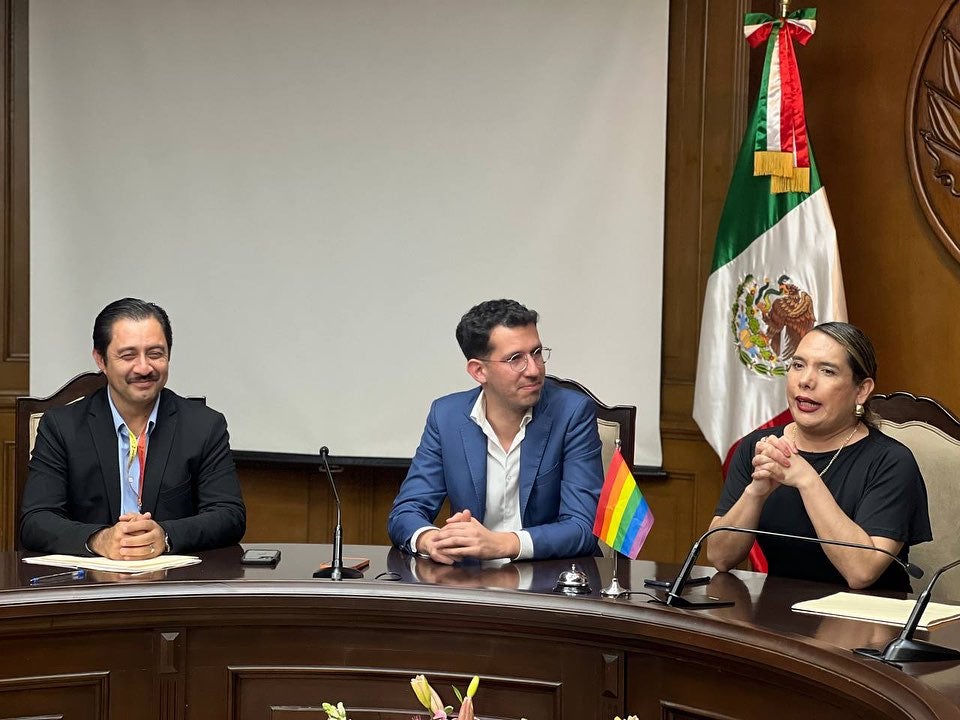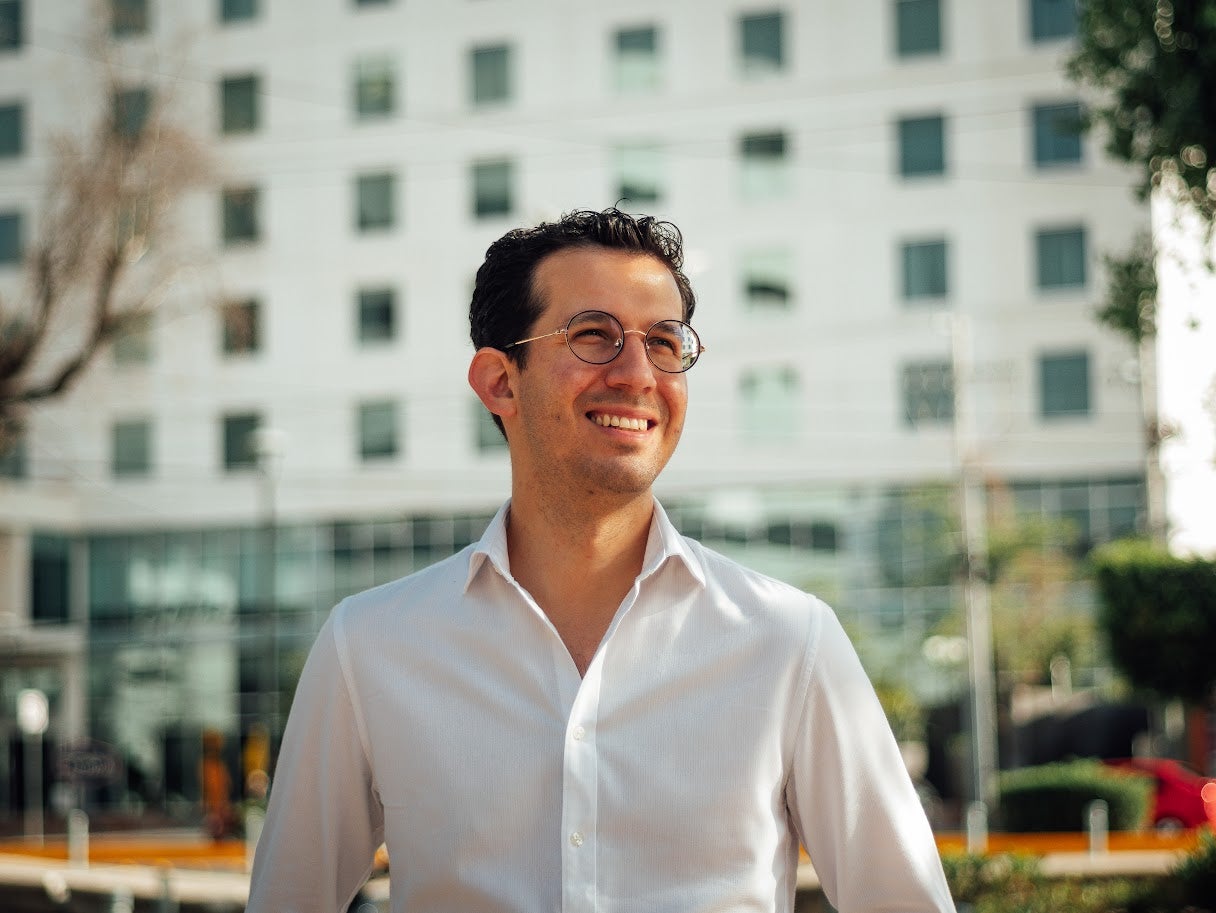Georgetown alumnus develops innovative database to expose LGBTQ+ abuses
McCourt School of Public Policy alumnus Juan Pablo Delgado (MPP’19) developed Visible to shed light on violence and discrimination against LGBTQ+ people in Mexico.
When Juan Pablo Delgado (MPP’19) started litigating cases in Mexican courts on LGBTQ+ rights abuses, local and national authorities often denied the existence of prejudice against queer populations.
“There was a legislator in my home state’s congress that publicly laughed when being asked about transphobic attitudes in the state government and congress,” said Delgado, who is from León, Mexico.
The experience fueled Delgado’s efforts to expand Visible , an online platform that he launched while completing his master’s degree at Georgetown, which gathers data on violence and discrimination against LGBTQ+ Mexicans. Prior to Visible, there was no such repository.

Juan Pablo Delgado (center) is the cofounder and executive director of Amicus, a non-governmental organization dedicated to the promotion and defense of the human rights of LGBTQ+ people in Mexico. Photo credit: Juan Pablo Delgado
Since he launched Visible with a grant from Georgetown’s Baker Center for Leadership and Governance (now known as the Baker Trust for Transformative Learning ), more than 2,500 LGBTQ+ Mexicans have completed an anonymous eight-minute survey in which they’ve reported their own hostile and discriminatory experiences.
Even though the number of respondents may sound modest, Visible is the largest database of its kind in the country. Information is being made available to policymakers in hopes they will create data-driven inclusive policies in areas such as criminal and civil law, housing and health care.
Information is also being used by civil society, media and international organizations to support advocacy and legal initiatives. From 2015-2019, Mexican media reported on the murders of at least 441 LGBTQ+ people. Such coverage underplayed the scope of the problem, “as nonlethal violence wasn’t mentioned,” said Delgado. That created challenges in adjudicating justice for all violent offenses.
“You could bring a case before a court, and it would be quite easy for a judge to deny a systematic presence of discrimination and violence, which is crucial,” said Delgado. “You need to bring data that will demonstrate that there’s actually something systematic within society. We created Visible to demonstrate that discrimination and violence are everywhere.”
We created Visible to demonstrate that discrimination and violence are everywhere.
Juan Pablo Delgado (MPP’19)
In 2022, Visible won the Innovation in Transparency contest, sponsored by Mexico’s National Institute for Transparency, Access to Information and Personal Data Protection (INAI). Visible is administered through Amicus, a nonprofit LGBTQ+ advocacy group that Delgado co-founded in 2015.
These days, Delgado is working to give Visible a wider aperture, using TikTok and the gay online dating service Grindr to encourage questionnaire participation. Delgado’s efforts have grabbed the attention of government leaders in Mexico City, one of the few places in the country that logs discriminatory practices against the LGBTQ+ community. Officials are giving Delgado 10 years of data to add to the Visible records.
“Their data isn’t very systematic,” he said. “Our work is going to be quite useful for them, because we’re going to make sense of the data they have.”
As a graduate student at Georgetown University’s McCourt School of Public Policy, Delgado created Visible with the help of Wesley Joe , an associate teaching professor who specializes in statistics and data visualization, and Associate Professor Emerita Donna Morrison , an expert in survey design, and the mentorship of Fanny Gomez-Lugo , a Georgetown adjunct professor of law and Venezuelan lawyer who identifies as queer.
“Visible has gained such recognition and has such potential,” said Delgado. “We’re being asked by other countries in Latin America if we can export the software because it’s such an organic way of producing data.”
